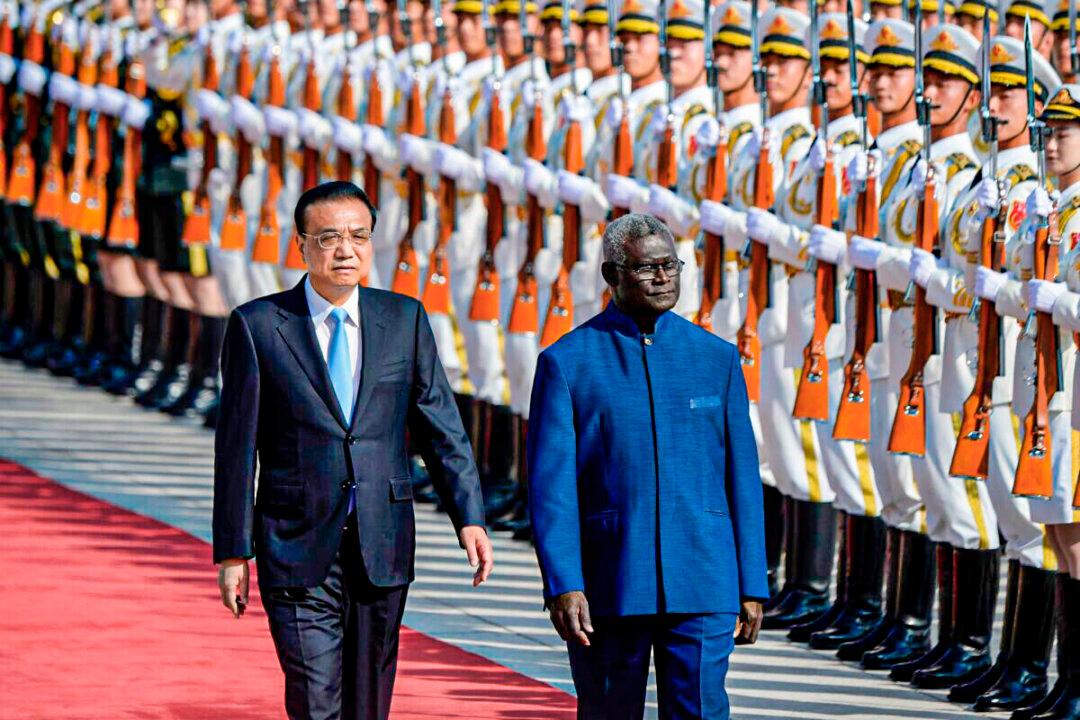Solomon Islands Prime Minister Manasseh Sogavare said on July 1 that he wants to establish a permanent security arrangement with Beijing to deal with “internal threats.”
The prime minister made the comments after a five-month training arrangement wrapped up between the China Police Liaison Team, the Royal Solomon Islands Police Force, and the Correctional Services of Solomon Islands.





